
“DuPont does many EV webinars with various 3rd party vendors. WeAutomotive Group is the only vendor where we get global coverage – every single time. We had true Homogeneous coverage from every major region with around 30% from the Americas, 30% from EMEA and 30% from APAC. I counted 37 separate countries registered for the last webinar, which is exceptional”
VP Global Marketing & Communication, DuPont



 Latest OnDemand BEV TECHTALKS 2023
Latest OnDemand BEV TECHTALKS 2023
Boosting Performance of Battery Thermal Management Solutions
Dominik Daub, Engineer Application Engineering, 3M
Samuel Joly, Application Engineer, 3M
Lightweight Battery Potting & Encapsulation Compounds For Thermal Management
John Albaugh, Market Development Manager, EV, Elkem Silicones
Chris Helt, Technical Service and Applications Lead, Industrial Assembly and Molding, Elkem Silicones
Stephen Amos, Senior Specialist Product Development, 3M Glass Bubbles
Find out more
-
Why potting & encapsulation compounds are important for battery packs and different types of these compounds
-
Role of lightweight components for EV battery packs
-
Differences between syntactic and gas-foamed potting & encapsulation compounds
-
Overview of 3M™ Glass Bubbles & role in lightweighting battery components
Battery Technology Roadmap: Material Science Solutions for Battery Pack Applications
Frank Billotto, AMS Business Development Leader, DuPont
Tyler Auvil, Ph.D., R&D Technical Manager, DuPont
Find out more
-
Battery technology for next-generation vehicles keeps evolving. A roadmap integrating energy density, functional and system needs with changing chemistries helps the supply chain make informed decisions on building a better battery.
-
In this informative webinar, DuPont experts will talk about their latest offerings in mechanical, thermal, and electrical solutions that help meet energy density, functional and system needs.
-
We’ll give you examples of material science applications that can help with your toughest challenges including fast charging, safety/fire protection, sustainability, thermal and electrical conductivity along with information about our in-house formulation, testing and design capabilities.
How Pressure-Sensitive Adhesives Enable Advanced Thermal Runaway Barrier Design
Max VanRaaphorst, Business Development Manager – E-Mobility and Automotive, Avery Dennison Performance Tapes, North America
Kyle Witham, Product Development Engineer, Avery Dennison Performance Tapes, North America
Find out more
-
Fires caused by thermal runaway continue to be a significant issue in the evolution of EV battery packs. Now, as the EV marketplace approaches a tipping point, engineers are racing to address this challenge using various technologies. These include high-performance, pressure-sensitive adhesive (PSA) tapes used in combination with thermal materials that can assist in hindering thermal runaway propagation.
-
How the evolution of EV battery pack design presents challenges to engineers seeking thermal runaway prevention solutions
-
How and why PSA tapes are being incorporated into thermal runaway protection barriers in EV battery packs
-
How PSA tapes offer numerous advantages in EV battery pack design, including flame retardancy, ease of assembly, corrosion prevention, and end-of-life-recyclability
-
An overview of how to choose the right PSA tape for a specific application
-
Thermal Runaway and Propagation Testing Pitfalls
Rich Byczek, Global Technical Director, Transportation Technologies
Find out more
-
Propagation testing requires the intentional triggering of a single cell (or multiple cells) in a battery module or pack, to evaluate the ability of a specific battery design to reduce potential cell-to-cell propagation.
-
This webinar discussed some of the common certification test methods currently utilized and the various requirements and criteria.
Battery Thermal Management For Commercial Electric Vehicles
Ashley Marie Conley, Product Manager of Advanced Thermal Systems, Modine Manufacturing
Find out more
-
Key Considerations for Thermal Management of Commercial Electric Vehicles – What You Need to Know about Controlling Thermals for the Battery Pack, Power Electronics and Passenger Comfort
-
Common Architectures for Battery Thermal Management Systems, Electronic Cooling Packages and Cabin HVAC for Heavy Duty Vehicles
-
Learn How to Identify the Thermal System You Need For Your Chassis Architecture
Propagation Test Requirements For Repurposed EV Batteries
Rich Byczek, Global Technical Director, Transportation Technologies
Find out more
When repurposing EV batteries for stationary applications, new application-specific requirements must be validated on the repurposed packs.
One such test is propagation (otherwise called cell-propagation, thermal runaway, or single-cell-design tolerance).
As these test methods generally require modifications to an existing cell or battery pack to implement the test, repurposed batteries add a new challenge, as they are already manufactured, so modifications for testing must be implemented at the test site.
This webinar discusses these additional challenges and potential solutions for effectively performing these tests as well as potential preparation efforts that can be implemented on new EV batteries in expectation of future certification test needs.
Electrical Insulation: Design Challenges, Materials, Application & Optimization for ePowertrain
David Stankes, Application Development Specialist, 3M
Find out more
• What are the design challenges of electrical insulation in EV battery and eMotor driven by major ePowertrain design trends?
• Major types of electrical insulation materials and their application areas today
• What are the major attributes (and disadvantages) of the major types of electrical insulation materials?
• Next generation electrical insulation technologies to enable new ePowertrain design and manufacturing
Advances In Thermally Conductive, Electrically Insulated Materials For E-Mobility Applications
Ray L. Szparagowski, Technical Director, Automotive and High Performance Plastics, Global Fluid Power Division, Freudenberg Sealing Technologies
Find out more
• Plastic grade materials that improve thermal management for temperature control and maintain electrical resistance for safety.
• TCEI (Thermal Conductive Electrically Isolating) grades offer significant improvements in temperature control in E-Mobility applications.
• FST advanced modeling techniques can evaluate application design and material impacts on temperatures to address critical hot spots that can occur.
• E-motor applications such as bobbins and slot liners have shown significant temperature reduction using these new TCEI materials.
Enabling Sustainable High Performance Battery Systems
Antonio Voci, Product Manager E-Mobility, Sika Automotive
David Hofstetter, Senior Project Leader, Sika Technology
Latest Developments And Emerging Issues In Battery Thermal Runaway
Brian Engle, Business Development Manager – Amphenol Advanced Sensors
Find out more
• Analysing the future role of compression pads and cell-to-cell barriers in managing mechanical and thermal energy inside a module and/or pack
• Reviewing the landscape of next-gen solutions; including foams, fibers, foils, and aerogels
• Understand how energy and material flows during a thermal event
• Case Study: Thermal propagation stopped cold in real-world testing of PyroThin, an aerogel-based thermal barrier
 Past BEV TECHTALKS
Past BEV TECHTALKS

Modeling Structural Adhesive Joints In Electric Vehicles

Pressure Sensitive Adhesive (PSA) Applications In E-mobility Applications

Automating Your Adhesive Application

Battery Interconnect Technology And Outlook

In Pursuit Of Silence Inside BEVs: The New Products Behind The Next Level Of Acoustic Comfort
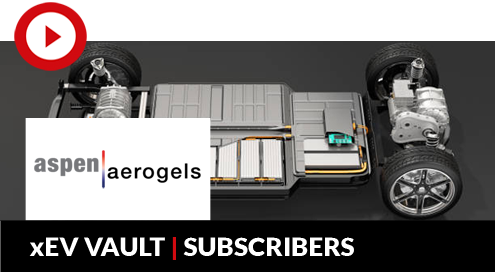
Don’t Just Delay Cell-to-Cell Thermal Propagation, Stop It

Liquid Cooling For EV Charging: How To Make Connections That Drive Performance & Reliability

Thermal Management & Bonding of Lithium Battery Cells & Modules

Thermal Conductive Adhesives For Next Generation Cell-to-Pack Configurations

Use Of Adiabatic Calorimetry In Battery Safety

Building Digital Twins Towards A Complete, Faster, Cost Effective & More Optimal Design Of Vehicles
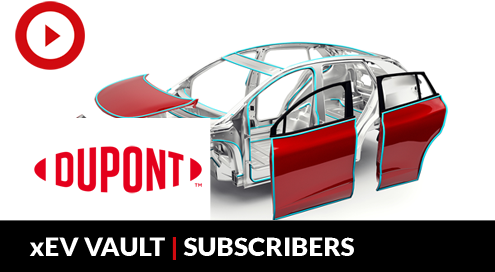
Thermal Management Optimization For The Future Of Battery Designs

Improve Process Efficiency Through Thermal Adhesive Simulation For Tool Path Optimization & Module Assembly
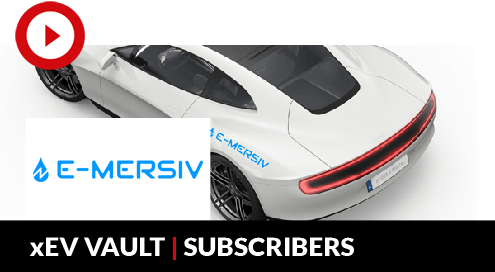
Battery Immersion Cooling: The Lightest And Safest Solution For EVs And HEVs

Engineering The Thermal & Safety Challenges In Next-Generation Battery Packs

Low Carbon Footprint Technologies For Automotive Acoustics And Battery Composites: The Key Enablers For Sustainable Mobility

The Basics Of UN 38.3 And The Requirements For The Transportation Of Lithium Batteries

Cell & Battery Abuse: Development Of Thermal Runaway / Propagation Tests For EV & Stationary Batteries

EVSE Charging And Safety Standards, Going Beyond Level 1 And 2

Future Of Water-Glycol Cooling In Electric Vehicles

Adhesive & Sealing Systems For High-Voltage Batteries In Electric Vehicle

Material Solutions For Module Integration For Cylindrical Cells

Enabling Smarter Battery Pack Design & Assembly Processes With Innovative Adhesive, Sealant & Thermal Technologies

Innovative Thermal Interface Materials: How Adhesives And Sealants Are Accelerating xEV’s

Propagation Control Strategies And The Use Of Flexible Graphite Heat Spreaders

Full System Solutions To Enable Battery Pack Assemblies With Innovative Adhesive & Thermal Management Solutions

Overcoming Technical & Cost Challenges For Next Generation Automotive Batteries

Understanding The Thermal And Safety Challenges In Next-Generation Battery Packs

Why Immersed Battery Cooling

Monitoring Cell Temperature To Optimize Battery Performance And Design

Extending Battery Life of Electric Vehicle Fleets

Silicone Foams And Thermally Conductive Silicones In Battery Pack Assembly

Simulation To Aid Design: Accurately Predicting Thermal Performance And State Of Health Of A Battery Pack

Methodology For Modelling And Simulating Battery Thermal Runaway Events

Thermal Interface Materials – Gap Filler Liquids For Battery Systems

Specifying Thermal Management Solutions For Battery Pack Design

Battery Thermal Comfort: A Multi-Component Approach

EV Battery Pack Design And Material Selection For High Performing Batteries

Improved Methods For Leak Testing Li-Ion Batteries

Three Innovative Material Solutions To Address Technical Challenges In Automotive Electrification

Battery Connection Solutions In e-Mobility: 3 Distinct Technologies For Battery Manufacturing

Solving A Burning Issue: Dealing With Thermal Runaway

Driving Toward The BEV Tipping Point: Solving cost And Scalability Challenges

Upscaling Processes For New Battery Raw Materials From Laboratory Into Industrial Production

Breakthrough Silicon Anodes For Next-Gen EV Batteries

Material Options For Insulating And Protecting Power Distribution And Cooling Components In The Battery

Making The Next Super-Battery Solid-State Batteries
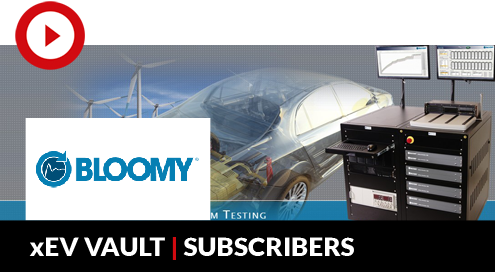
Efficient BMS Testing Throughout The BMS Development Lifecycle

Demystifying BMS Hardware-In-the-Loop (HIL) Testing

Methods For Leak Testing Lithium-ion Batteries

Thermal Propagation Prevention: Materials, Application, & Automation Techniques

How New Laser Technologies Can Help Advance Your Battery Manufacturing

Introducing Battery Intelligence: The Key To Powering Your Battery Program Through COVID-19 And Beyond

How To Advance Aluminum Laser Welding In Automotive Structures

EV Battery & Electrification Testing – From the Grid To The Road

Choosing The Right Scanner And Laser Solution In Battery Manufacturing

Using Clad Metal Innovations For Battery, Charging, And Thermal Management Challenges In Automotive Electrification

Powder Coating Solutions For Electric Vehicle Components

Innovative Solutions & Performance Materials For Lithium Ion Battery Packs

EV Battery Simulation, Accurately Predicting Performance & State Of Health

Upscaling Processes For New Battery Raw Materials From Laboratory Into Industrial Production

COVESTRO: New Ways To Manage Heat – Makrolon® TC

H.B. Fuller’s Innovative Materials For EV Batteries

Hybrid Electronic Control Technology For HV DC Switching

Battery Pack Material Selection & Design For Scaled Mass Production

Pressure Sensitive Adhesive (PSA) Applications In Li-ion Battery Assembly Processes

Laser Solutions For Demanding Battery Manufacturing Applications

Increasing Thermal Transfer In EV Batteries Through The Use Of Openair-Plasma® Technology

Engineering The Thermal & Safety Challenges In Next-Generation Battery Packs

Testing Battery Sensitivities of EV Subsystems Using Battery Simulation And Hardware-In-the-Loop (HIL) Techniques

Technical Manufacturing Audits Of Cell Manufacturers

Translating FTRC Results Into Practical Thermal Analysis Techniques

Why Is The Ultra-Thin Heating Polyimide Film The Best Value Solution For Battery Warm Up?

Robust Early Detection Of Thermal Runaway (REDTR)

Sensor Optimization For Effective Thermal Management And HP/HX Control For xEV And Stationary Storage Batteries

Liquid Cooling For EVs – Cooling Strategies & Avoiding Issues For Reliable Fast Charging Electric Vehicles

Safer, Cooler, Faster, And Farther – Adhesives For Thermal Solutions In EV Battery Packs

Innovative Material Solutions To Address Electric Vehicle Safety & Thermal Management Challenges

Cell & Battery Abuse: Development Of Thermal Runaway/Propagation Tests For EV & Stationary Batteries

Thermal Propagation Control Strategies and the Use of Flexible Graphite Heat Spreaders

Staying Cool – Thermal Management When No Two Battery Packs Are The Same

EV Battery Design for Manufacturability: Process to Production

Temperature Counts: Increasing xEV Safety, Comfort, Range And Performance With NTC Sensors

Next Generation Silicone Solutions for xEV Battery Challenges

Integration Of The Battery Casing With The Cooling Plate, Enabled By A Coolant-Resistant Structural Adhesive

Innovations In Electric Vehicle Cooling Technologies

Sensor Design And Optimization For xEV, EVSE, And ESS Thermal Management

EV Battery Design for Manufacturability: Thermal Management Troubleshooting

How Adhesives Material Science Can Support Sustainability Goals For Automotive

Review Of Battery Cooler Brazing Development: Case Study
WeAutomotive Group delivers unique, high-value, content-lead technical agendas and networking forums for the Electric Vehicle Sector.

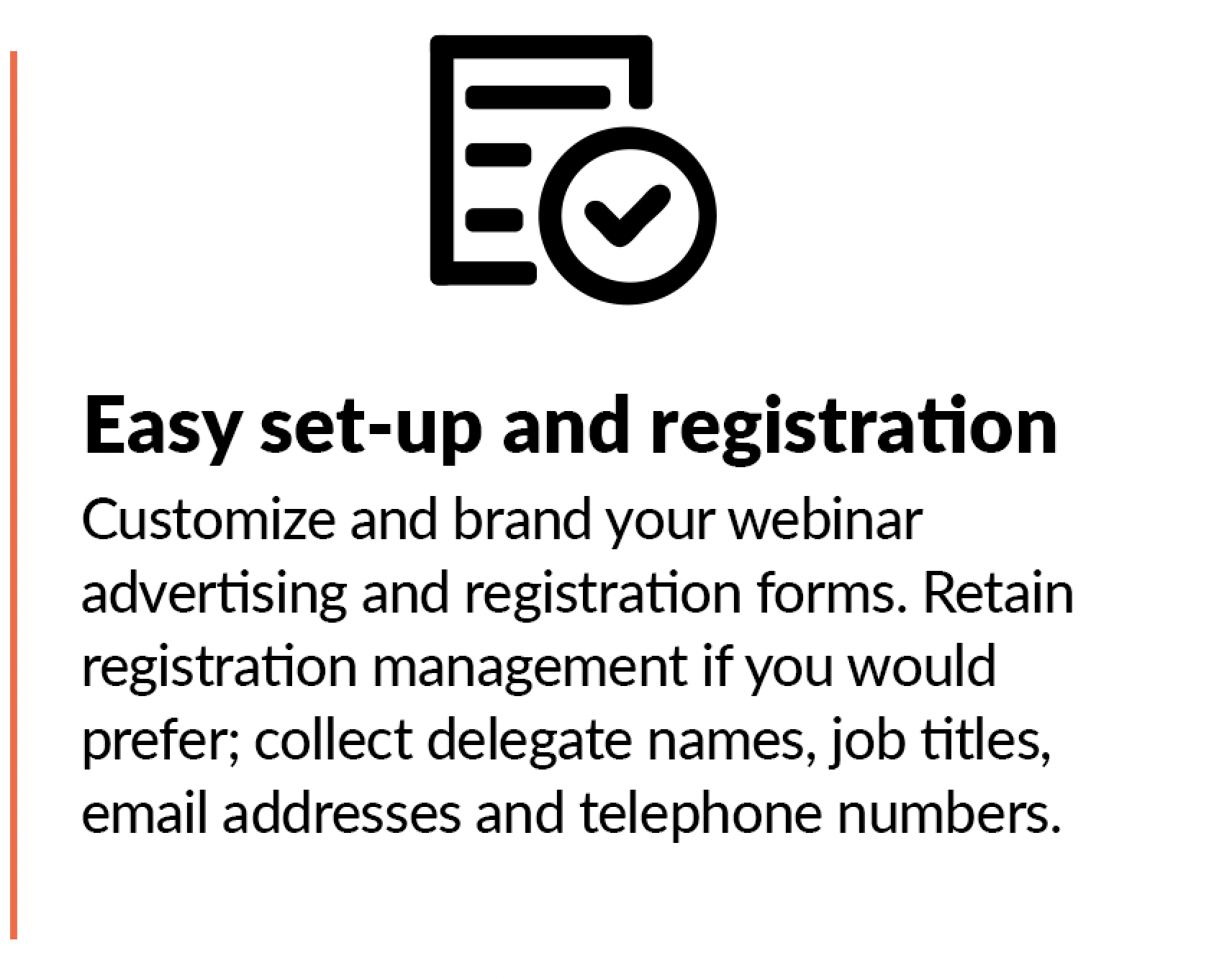

Chat: Set private and group panellist chat settings for attendees and panellists
Q&A And Polling: Manage and share audience input in Q&A dialog box where attendees ask questions, either live audibly or text answers
Attendee “Raise Hand”: Increase attendee engagement by allowing virtual hand-raising
Attention Indicator: Track how engaged your audience is with your content and which viewers show the most interest
![]()
HD Video And Audio
Multiple live video presenters and panellists can share their webcam and interact with the audience; If you’d prefer, you can to remain unseen, or just post a profile picture.
![]()
Live Broadcasting
We can all broadcast live across all social media channels with Facebook Live, YouTube and LinkedIn integrations.
![]()
Full Featured Host-Controls
Mute/unmute panellists, and promote attendee to panellist, giving them audio and video capabilities for enhanced engagement.
![]()
Reporting & Analytics
Get reports on registrants, attendees, polling, engagement levels and Q&A for follow up.
![]()
On-Demand Viewing
Host larger-scale events with help from our team, including planning, rehearsal and live support.













